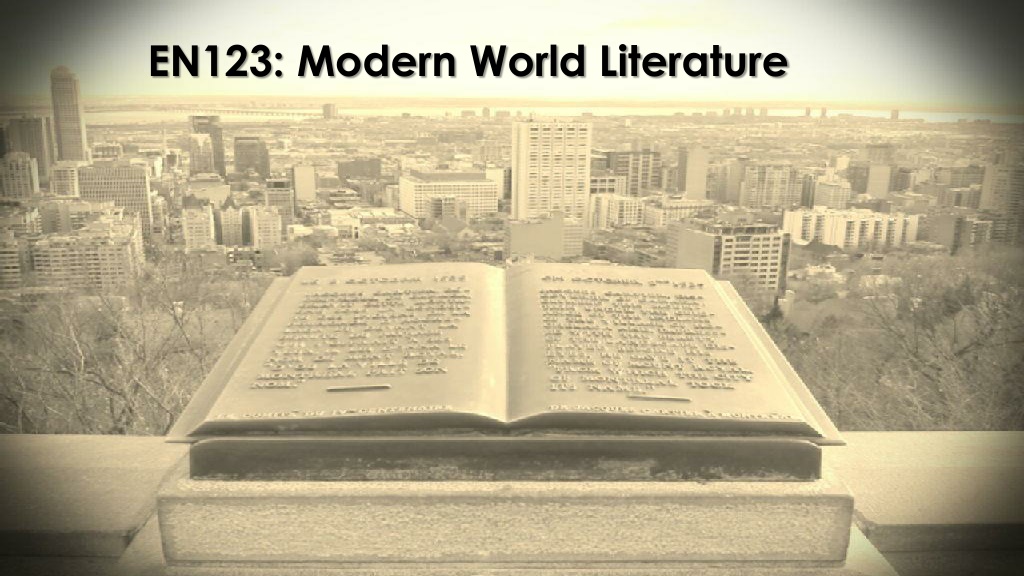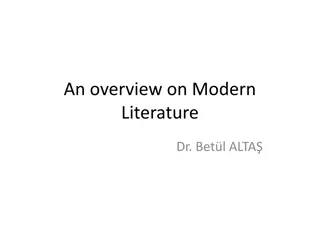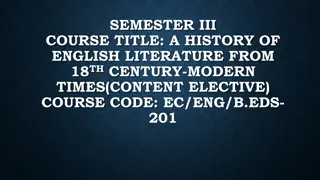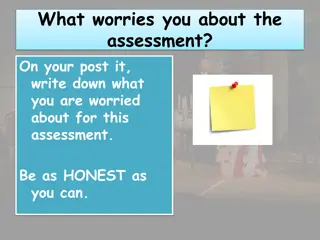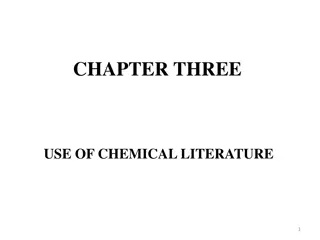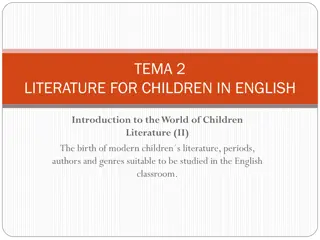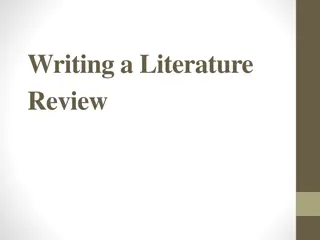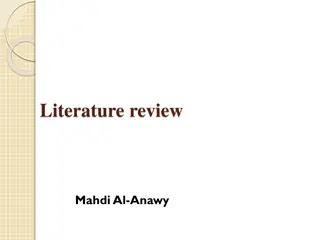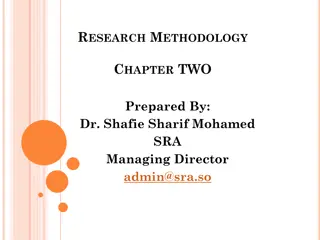EN123: Modern World Literature
The content reflects on modern world literature, touching on themes of societal structures, individual experiences, and the complexities of modernity. It includes references to works such as "The Black Jacobins" by C.L.R. James and explores the concept of being modern in a rapidly changing world.
Uploaded on Feb 15, 2025 | 0 Views
Download Presentation

Please find below an Image/Link to download the presentation.
The content on the website is provided AS IS for your information and personal use only. It may not be sold, licensed, or shared on other websites without obtaining consent from the author.If you encounter any issues during the download, it is possible that the publisher has removed the file from their server.
You are allowed to download the files provided on this website for personal or commercial use, subject to the condition that they are used lawfully. All files are the property of their respective owners.
The content on the website is provided AS IS for your information and personal use only. It may not be sold, licensed, or shared on other websites without obtaining consent from the author.
E N D
Presentation Transcript
https://www.youtube.com/watch?v=AmkMEoVb6rA The Specials, Rat Race (1980) You're working at your leisure to learn the things you'll need The promises you make tomorrow will carry no guarantee I've seen your qualifications, you've got a Ph.D. I've got one art O level, it did nothing for me Working for the rat race You know you're wasting your time Working for the rat race You're no friend of mine You plan your conversation to impress the college bar Just talking about your Mother and Daddy's Jaguar Wear your political T-shirt and sacred college scarf Discussing the worlds situation but just for a laugh You'll be working for the rat race You know you're wasting your time Working for the rat race You're no friend of mine
C. L. R. James, The Black Jacobins: When three centuries ago the slaves came to the West Indies, they entered directly into the large-scale agriculture of the sugar plantation, which was a modern system. It further required that the slaves live together in a social relation far closer than any proletariat of the time. The cane they reaped had to be rapidly transported to what was factory production. The product was shipped abroad for sale. [. . .] The Negroes, therefore, from the very start lived a life that was in essence a modern life. (p. 306)
Modernity: A period (e.g. 1789-1989, or 1492-present)? An attitude to the present? A condition corresponding to the rise of the modern (capitalist) world system?
To be modern is to experience personal and social life as a maelstrom, to find one s world and oneself in perpetual disintegration and renewal, trouble and anguish, ambiguity and contradiction: to be part of a universe in which all that is solid melts into air. To be a modernist is to make oneself somehow at home in the maelstrom, to make its rhythms one s own, to move within its currents in search of the forms of reality, of beauty, of freedom, of justice, that its fervid and perilous flow allows. (Marshall Berman, All That Is Solid Melts Into Air: The Experience of Modernity, New York: Verso, 345)
The bourgeoisie cannot exist without constantly revolutionising the instruments of production, and thereby the relations of production, and with them the whole relations of society. All fixed, fast-frozen relations, with their train of ancient and venerable prejudices and opinions, are swept away, all new-formed ones become antiquated before they can ossify. All that is solid melts into air, all that is holy is profaned, and man is at last compelled to face with sober senses his real conditions of life, and his relations with his kind. (Marx and Engels, Communist Manifesto)
[Modernism is] any attempt by modern men and women to become subjects as well as objects of modernization, to get a grip on the modern world and make themselves at home in it. (Berman)
The modernism of underdevelopment is forced to build on fantasies and dreams of modernity, to nourish itself on an intimacy and a struggle with mirages and ghosts. In order to be true to the life from which it springs, it is forced to be shrill, uncouth and inchoate. But the bizarre reality from which this modernism grows, and the unbearable pressures under which it moves and lives social and political pressures as well as spiritual ones infuse it with a desperate incandescence that Western modernism, so much more at home in its world, can rarely hope to match. (Berman)
Five features of modernity A break with the past Time is always out of joint Space-time compression The rise of the everyday An experience of fragmentation, displacement and dispersal
A break with the past Big ditch theories of history cf. Karl Polanyi, The Great Transformation: modernity as the rise of Market Society Inventing tradition as necessary counterpoint to modernity A felt need to reject the past in order to make way for the new; or else to recover the past in order to criticise the present (primitivism, Gothic, some versions of Romanticism)
Disjointed time Living at odds with one s time: living in two or more times at once Ernst Bloch: the contemporariness of the non-contemporary Rise of the modern primitive : combining the archaic with the contemporary (Marinetti, Tzara, de Andrade)
Space-time compression Collapse of space, acceleration of time: transport and communications revolutions Speed-ups in production, consumption and the pace of living It takes all the running you can do, to keep in the same place the Red Queen in Alice through the Looking Glass
The latest round of time-space compression has also realized a gruesomely peculiar mixture of the speed-up in the production of all nature: the shift from the 45- to the 57-second minute in autowork; faster-growing transgenic salmon; faster-milking, hormone-injected cows; and perhaps most spectacularly, the transition from the 73-day chicken in 1955 to the 42-day chicken in 2005 . (Jason W. Moore)
The rise of the everyday Baudelaire: By modernity I mean the ephemeral, the fugitive, the contingent, the half of art whose other half is the eternal and the immutable ( The Painter of Modern Life )
Emancipation Is one half of the human species, like the poor African slaves, to be subject to prejudices that brutalize them, when principles would be a surer guard only to sweeten the cup of man? Is not this indirectly to deny women reason? [A]s the whole system of representation is now, in this country, only a convenient handle for despotism, [women] need not complain, for they are as well represented as a numerous class of hard working mechanics, who pay for the support of royalty when they can scarcely stop their children s mouths with bread. (Wollstonecraft, Vindication of the Rights of Women)
Fragmentation World literature as a system in which the epic the unified narrative of a people is no longer possible
But is world literature possible? Nowadays, national literature doesn t mean much: the age of world literature is beginning, and everybody should contribute to hasten its arrival. (Goethe)
Or is world literature inevitable? The bourgeoisie has through its exploitation of the world market given a cosmopolitan character to production and consumption in every country. And as in material, so also in intellectual production. The intellectual creations of individual nations become common property. National one-sidedness and narrow-mindedness become more and more impossible, and from the numerous national and local literatures, there arises a world literature. (Marx and Engels)
Translation as treason Traduttore traditore = translator, traitor i.e., to translate is to betray the source text
Translation as emancipation Translation liberates the translation-language. Because a translation will always be read as a translation, as something foreign, it is freed from many of the constraints of the currently accepted norms and conventions in the national literature. (Eliot Weinberger)
Is world literature different from other literatures? David Damrosch: world literature is (1) a form of detached engagement with worlds beyond our own place and time (2) an elliptical refraction of national literatures (3) writing that gains in translation (How to Read World Literature)
World literature: one and unequal I will borrow [my] initial hypothesis from the world-system school of economic history, for which international capitalism is a system that is simultaneously one, and unequal; with a core, and a periphery (and a semi-periphery) that are bound together in a relationship of growing inequality. One, and unequal: one literature (Weltliteratur, singular, as in Goethe and Marx), or, perhaps better, one world literary system (of inter-related literatures); but a system which is different from what Goethe and Marx had hoped for, because it s profoundly unequal. (Franco Moretti)
The tree and the wave When historians have analysed culture on a world scale ... they have tended to use two basic cognitive metaphors: the tree and the wave. ... The tree describes the passage from unity to diversity: one tree, with many branches: from Indo-European, to dozens of different languages. The wave is the opposite: it observes uniformity engulfing an initial diversity: Hollywood films conquering one market after another (or English swallowing language after language). ... Think of the modern novel: certainly a wave ... but a wave that runs into the branches of local traditions, and is always significantly transformed by them. (Franco Moretti)
World literature vs. national literature This, then, is the basis for the division of labour between national and world literature: national literature, for people who see trees; world literature, for people who see waves. ... The point is that there is no other justification for the study of world literature (and for the existence of departments of comparative literature) but this: to be a thorn in the side, a permanent intellectual challenge to national literatures especially the local literature. If comparative literature is not this, it s nothing. (Franco Moretti)
Three requests Care about the texts we read Participate in seminars Be prepared to re-learn (or unlearn) what you thought you knew about English studies
